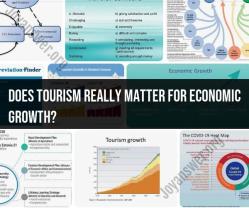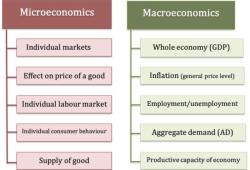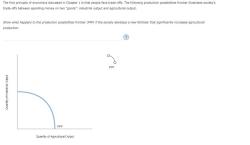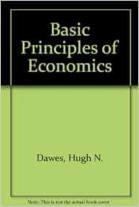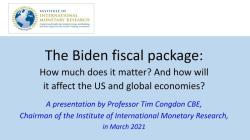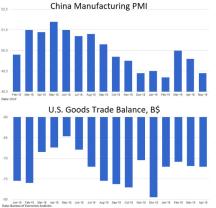What are the three most important concepts in macroeconomics?
Macroeconomics encompasses a wide range of concepts, but three fundamental and important concepts in the field are:
1. Gross Domestic Product (GDP):
- Definition:
- GDP is the total market value of all goods and services produced within a country in a specific time period. It is a key indicator of a country's economic performance.
- Importance:
- GDP provides a comprehensive measure of a nation's economic activity. It is used to assess the overall health of an economy, whether it is growing, contracting, or stable. Policymakers, economists, and investors rely on GDP to make informed decisions.
2. Unemployment Rate:
- Definition:
- The unemployment rate is the percentage of the labor force that is unemployed and actively seeking employment. It is a crucial measure of the health of the labor market.
- Importance:
- High unemployment rates can indicate economic distress, while low rates may suggest a robust labor market. Policymakers use unemployment data to design interventions aimed at reducing unemployment and improving job creation.
3. Inflation Rate:
- Definition:
- Inflation is the rate at which the general level of prices for goods and services is rising. The inflation rate measures the percentage change in the average price level of a basket of goods and services over time.
- Importance:
- Moderate inflation is considered normal in a growing economy, but excessive inflation can erode purchasing power. Central banks use monetary policy tools to manage inflation and maintain price stability. Inflation is a critical factor in economic decision-making for businesses and individuals.
These three concepts—GDP, unemployment rate, and inflation rate—are foundational in macroeconomics and provide essential insights into the overall health and performance of an economy. They are widely used by economists, policymakers, and businesses to assess economic conditions, formulate policies, and make informed decisions.
What are the fundamental concepts that define macroeconomics?
The world of macroeconomics revolves around a key set of fundamental concepts that form the building blocks for understanding and analyzing the behavior of entire economies. Here are some of the core principles:
1. National Income and Output:
- Gross Domestic Product (GDP): Measures the total market value of all final goods and services produced within a country's borders in a given year. It serves as a primary indicator of a nation's economic size and performance.
- Aggregate Demand (AD): Represents the total spending in an economy for goods and services at different price levels. Understanding AD helps explain variations in economic activity and inflation.
- Aggregate Supply (AS): Represents the total amount of goods and services producers are willing and able to supply at different price levels. Analyzing AS illuminates factors influencing production and economic growth.
2. Inflation and Unemployment:
- Inflation: Measures the rate of increase in the general price level of goods and services in an economy over time. Understanding inflation patterns is crucial for economic stability and policy decisions.
- Unemployment: Refers to the percentage of the labor force actively seeking work but unable to find it. Analyzing unemployment trends helps assess the health of the labor market and guide policies.
3. Fiscal and Monetary Policy:
- Fiscal Policy: Governs how governments use spending and taxation to influence economic activity. Increased government spending or decreased taxes can stimulate the economy, while the opposite can dampen it.
- Monetary Policy: Refers to the tools used by central banks to manage the money supply and interest rates. Adjusting interest rates can influence borrowing, investment, and aggregate demand, impacting economic growth and inflation.
4. Economic Growth and Development:
- Economic Growth: Measured by the increase in real GDP over time, it reflects the expansion of a nation's productive capacity. Understanding factors influencing growth is crucial for long-term prosperity.
- Development: Refers to the broader process of improving human well-being through advancements in health, education, infrastructure, and living standards. Macroeconomic principles guide development strategies and resource allocation in developing countries.
5. International Trade and Finance:
- Balance of Trade: Represents the difference between a country's exports and imports of goods and services. Understanding trade patterns and imbalances informs international trade policies.
- Exchange Rates: Determine the price of one currency in terms of another. Fluctuations in exchange rates affect international trade, investment, and tourism.
6. Economic Models and Theories:
- Macroeconomic models: Simplify complex economic relationships to analyze the effects of policy changes and predict future economic outcomes.
- Economic schools of thought: Offer different perspectives on how economies function and the role of government intervention, influencing policy debates.
These are just some of the fundamental concepts that define macroeconomics. By understanding these key principles, you can gain a deeper appreciation for the complex forces shaping national economies and the decisions that influence our collective well-being.
Remember, macroeconomics is a dynamic field with ongoing research and debate. Each concept can be explored in further detail, revealing intricate layers of complexity and nuances. Feel free to ask any further questions you may have about specific concepts or explore the intricacies of any of these fundamental pillars of macroeconomics.








